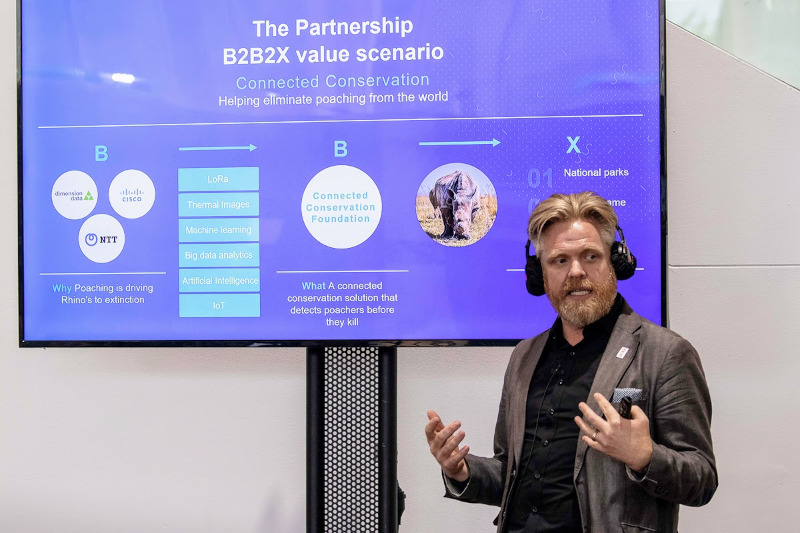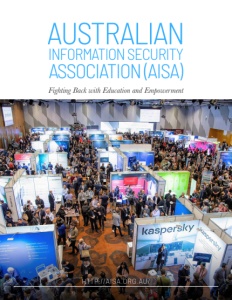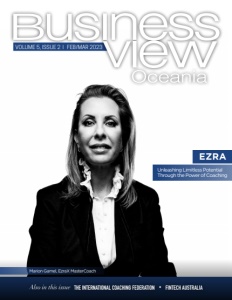Australian Information Security Association (AISA)
Fighting Back with Education and Empowerment
Business View Oceania interviews Damien Manuel, Chair of Board of Directors of AISA, for our focus on the Cybersecurity Industry in Australia
It’s no secret that cyber security is a hot topic these days. Current statistics report that one in three Australians will be adversely impacted by a significant cyber security incident. The Australian Cyber Ssecurity Center (ACSC), run by the federal government, says that a cybercrime is reported to them every six minutes.
The Australian Information Security Association (AISA) is doing what they can to help. Founded in 1999, AISA is a nationally recognised nonprofit organisation and charity. They are a respected authority on information security in Australia, working to educate both the general public and professionals in the business sector about the risks and dangers of data theft and cyberattacks. According to their mission statement, AISA aims to empower, educate, and increase awareness regarding security practices and systems.
Headquartered in New South Wales, the Australian Information Security Association has a presence in every state and territory around the country. Business View Oceania had the opportunity to speak with the Chairperson of AISA’s Board of Directors, Mr. Damien Manuel, to learn more about AISA and the future of cyber security in Australia.
BVM: Let’s start with a bit of a history on the association – what was the mindset when you were founded and how it has evolved?
Manuel: “Well, AISA originally started through a number of interested individuals in what was called, back then, information security. Over the last 21 years, it’s grown into a not-for-profit charity that is focused on improving the education and understanding of cyber security in our community, businesses, and across the industry sector. We also work to help improve cyber security professionals in terms of knowledge sharing, connecting with industry resources, building networks, and expanding their understanding. Cyber security is such a diverse field- this makes our work especially important.
“In terms of our staff, we have grown to six FTE. AISA also has over 120 volunteers across the country in addition to a board of 12, who are all volunteers, as well.”
BVM: What have the biggest challenges been for the association and for the industry?
Manuel: “I think the biggest challenge for the industry is that everybody thinks of cyber security as being something technical, but at the end of the day, cyber security is just another risk that businesses need to manage. That encompasses the culture within organisations and the processes that might need to change from a business perspective to ensure proper security, and the technology that improves efficiency. The misperception is that cyber security is all about the technology when it really is just managing another risk. It’s important not to forget the people and process aspects.”

It’s no secret that cyber security is a hot topic these days. Current statistics report that one in three Australians will be adversely impacted by a significant cyber security incident. The Australian Cyber Ssecurity Center (ACSC), run by the federal government, says that a cybercrime is reported to them every six minutes.
The Australian Information Security Association (AISA) is doing what they can to help. Founded in 1999, AISA is a nationally recognised nonprofit organisation and charity. They are a respected authority on information security in Australia, working to educate both the general public and professionals in the business sector about the risks and dangers of data theft and cyberattacks. According to their mission statement, AISA aims to empower, educate, and increase awareness regarding security practices and systems.
Headquartered in New South Wales, the Australian Information Security Association has a presence in every state and territory around the country. Business View Oceania had the opportunity to speak with the Chairperson of AISA’s Board of Directors, Mr. Damien Manuel, to learn more about AISA and the future of cyber security in Australia.
BVM: Let’s start with a bit of a history on the association – what was the mindset when you were founded and how it has evolved?
Manuel: “Well, AISA originally started through a number of interested individuals in what was called, back then, information security. Over the last 21 years, it’s grown into a not-for-profit charity that is focused on improving the education and understanding of cyber security in our community, businesses, and across the industry sector. We also work to help improve cyber security professionals in terms of knowledge sharing, connecting with industry resources, building networks, and expanding their understanding. Cyber security is such a diverse field- this makes our work especially important.
“In terms of our staff, we have grown to six FTE. AISA also has over 120 volunteers across the country in addition to a board of 12, who are all volunteers, as well.”
BVM: What have the biggest challenges been for the association and for the industry?
Manuel: “I think the biggest challenge for the industry is that everybody thinks of cyber security as being something technical, but at the end of the day, cyber security is just another risk that businesses need to manage. That encompasses the culture within organisations and the processes that might need to change from a business perspective to ensure proper security, and the technology that improves efficiency. The misperception is that cyber security is all about the technology when it really is just managing another risk. It’s important not to forget the people and process aspects.”

“From an industry perspective the number of cyber security incidents, whether it’s a breach, a data loss event, or an attack of some sort, are going to continue to increase. And so there’ll be more and more demand for people to understand how to safely use the technology that they’ve got to make sure that they don’t fall victim to different scams or cyberattacks. As you know, COVID forced a lot of businesses online very rapidly; there’s a lot to be undertaken to ensure that they’re safe and secure from an attack perspective. We are going to continue to see a rise of ransomware and scam attacks against everyday citizens as well as businesses.
“The other thing I think we are going to start to see is this concept of zero trust. It seems to be the latest buzzword… zero trust is about not trusting individuals and systems and authenticating or continually revalidating their access. A lot of the technology is not there yet from a zero trust perspective because in order for it to be really smart, it needs to have a lot of analytics and an understanding of human behavior. In the future, you will have AI biased systems collecting a lot of data and making a determination to automatically monitor and identify how you interact with data and systems in your day to day work, ensuring it is actually you and not someone using your account- hence a move towards greater behavioural and job function understanding.
“I think you are going to see a lot of employers struggle to attract and retain the talent they need, and so they’ll be looking to implement a lot more of what we call automation or orchestration and a great use of AI, to have systems doing things that people would normally be doing. A number of organisations may elect to maintain hybrid or working from home (WFH) systems post COVID-19, just as a way to attract the talent they need.”
AT A GLANCE
Australian Information Security Association (AISA)
What: A not-for-profit charity that’s focused on improving the education and understanding of cybersecurity for industry members
Where: Headquartered in New South Wales
Website: https://aisa.org.au/




 This information will never be shared to third parties
This information will never be shared to third parties